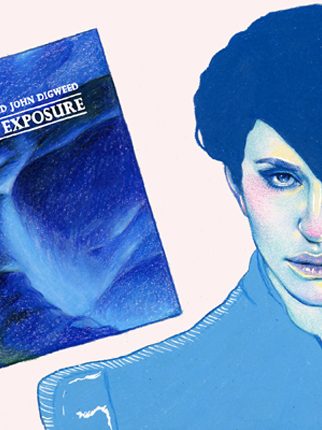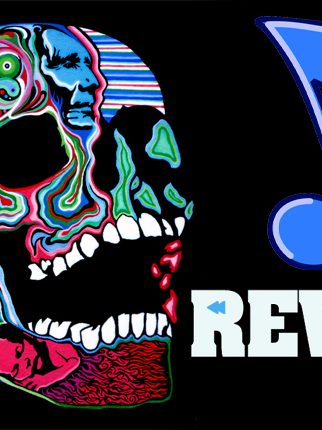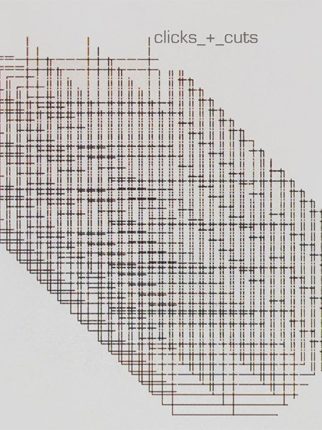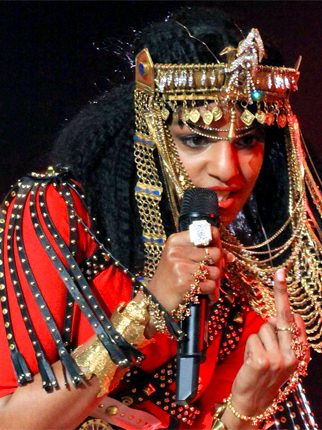Classic Album Rewind: Tricky ‘Maxinquaye’
In the ongoing Classic Album Rewind series, some of our favorite producers discuss a classic dance album that influenced their lives and career.
When Tricky abruptly left Massive Attack in 1992, following the release of their seminal debut Blue Lines and during the writing and recording sessions for Protection, his future seemed uncertain. The Bristol-based musician and rapper (born Adrian Thaws) was intent on pursuing a solo career that showcased his skills as a deft songwriter, MC and producer.
Three years later, he would seize the international spotlight with his landmark 1995 debut, Maxinquaye. Named after his mother, Maxine Quaye, the Mercury Prize-nominated album was a groundbreaking tour de force—an unrelenting dystopian vision fueled by rage, paranoia, self-consciousness, idealism, naiveté and melancholic introspection. Produced by Mark Saunders (who worked with the Cure and Neneh Cherry), the visceral 12-track set was a dense yet surprisingly catchy and concise sonic exploration (clocking in at just under an hour) that inhabited those dark spaces between hip-hop, rock, experimental noise, dub, soul and blues.
This was not the signature “trip-hop” sound pioneered by artists like Massive Attack, Portishead and DJ Shadow. This was something much more unsettling, pensive, primal and distinctly “other.” It was a genre-defying collision of styles that obliterated the trip-hop zeitgeist and forced listeners to reassess what they thought pop music could sound like. It also offered an unfettered glimpse into Tricky’s chaotic psyche, which vacillated between flamboyant rebellious outsider, egotistic “bad boy,” acerbic social commentator, philosophical savant and sensitive introvert.
However, what made Maxinquaye such a universally acclaimed milestone was the combination of Tricky’s ingenious use of samples to create intricate textural soundscapes; his unbridled, emotive lyrics; and brilliant collaborations with vocalist/musician and then-girlfriend Martina Topley-Bird. She was not only his muse; she was the crucial ingredient that elevated the album to an otherworldly postmodern manifesto. Her cerebral, poetic lyrics, supple melodies and unpolished instinctive performances (that were part jazz, part soul and part art-rock) infused the album with an intoxicating sultriness that was haunting, hedonistic and surreal. She was the perfect counterpoint to Tricky’s more menacing, frenetic delivery and imitable, gritty vocals, which were purposely mixed down to sound more garbled and sinister.
Some of the album’s most thrilling moments were: “Overcome” (where Topley-Bird’s seductive vocals and fragrant lyrics—partially lifted from Tricky’s own Massive Attack-penned track, “Karmacoma”—glide effortlessly over a chugging eerie rhythm); “Black Steel” (a fiery, rock-edged retelling of Public Enemy’s “Black Steel in the Hour of Chaos”); the narcotic “Aftermath” (an irresistible head-nodder that perfectly melds Marvin Gaye’s “That’s the Way Love Is” with LL Cool J’s “Eat ‘Em up L Chill”); “Brand New You’re Retro,” which cleverly sources Michael Jackson’s “Bad” and Public Enemy’s “Mind Terrorist” and reinvents them into a feverish post-punk throwdown; and the riveting “Hell Is Round the Corner,” which borrows the same slow-burning licks from Isaac Hayes’ “Ike’s Rap II” immortalized by Portishead a year earlier on their majestic “Glory Box.”
While these tracks were heralded by the masses as irrefutable centerpieces, I was equally captivated by cuts like the spliff-drift “Abbaon Fat Tracks” (a deliciously carnal “love letter” supplanted with sly, hypnotic grooves), the mesmeric “Suffocated Love” (with its beguiling mantra: “I think ahead of you, I think instead of you. Will you spend your life with me and stifle me? I know why the caged bird sings, I know why”) and the dub-drenched “You Don’t” featuring Ragga, whose commanding vocals echoed the raw intensity of Tina Turner with the soulful finesse of Shara Nelson (featured on Massive Attack’s classic anthems “Safe From Harm” and “Unfinished Sympathy”) and the artful fury of Grace Jones.
Twenty years later, the album hasn’t lost any of its potency or relevance—perhaps because it was so ahead of its time and unprecedented. Its inspiration was deeply rooted in frustration and the desire to smash the system and rewrite the rules, which still ring true today. And while Tricky would later dismiss it as a “shit album that sounds just like hundreds of other shitty albums out there,” Maxinquaye remains a peerless milestone that not only cemented his status as a tenacious visionary innovator, it also opened the door for an array of artists (like Björk and Radiohead), who would radically redefine their sound and chart more expansive, experimental terrain.





